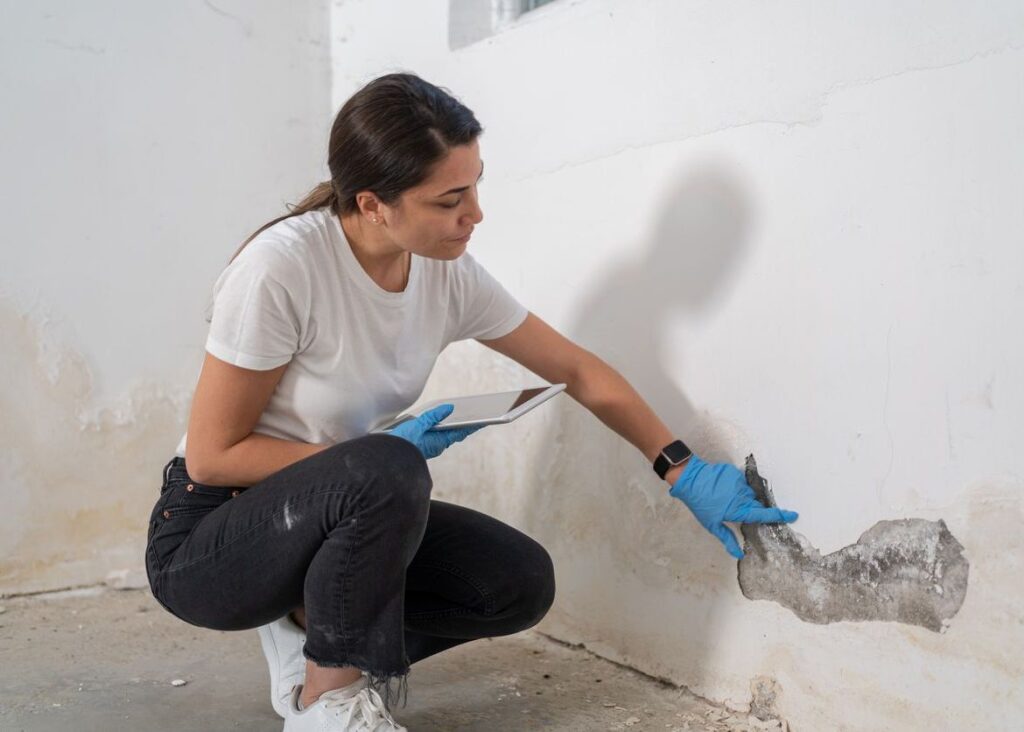By Dixie Somers
As homeowners, we all want to ensure that our houses are safe and sound for ourselves and our families. However, one crucial aspect that often gets overlooked is the foundation of our homes. The foundation is responsible for supporting the entire structure and any issues with it can lead to costly repairs or even endanger the safety of those living in the house. In this guide, we'll discuss seven signs that may indicate your home's foundation needs some tender loving care (TLC) so you can take necessary measures to keep your home strong and secure.
Cracks in the Walls or Floors
One of the most obvious signs that your home's foundation is in need of attention is the appearance of cracks in the walls or floors. These cracks can range from small hairline fractures to larger, more significant gaps. They may appear vertically, diagonally, or horizontally and can be found both inside and outside of the house. In some cases, these cracks may be a result of normal settling as a house ages, but if they are large or numerous, it's best to have them inspected by a professional.
Common places to look for cracks include near door frames, windowsills, and corners of walls. These areas may be more susceptible to cracking due to the changing pressures from the weight of the house or shifts in the soil underneath. Additionally, cracks in the foundation itself can also indicate a need for repair. Be sure to regularly inspect these areas for any changes or new cracks that may appear.
Uneven or Sloping Floors
If you notice that your floors are uneven or sloping, it could be a sign that your home's foundation is shifting or sinking. This can happen due to changes in the soil underneath the foundation, which can cause it to move and create an uneven surface. If left unaddressed, this can lead to further damage to the structure of your home.
Doors and Windows Not Closing Properly
Have you noticed that doors and windows in your home are suddenly difficult to open or close? This could be a sign that the foundation has shifted, causing misalignment of these fixtures. As a result, they may become stiff or jammed, making them hard to use and possibly leaving gaps for air or water infiltration.
Ignoring a sticking window or door may seem like a minor inconvenience, but it's important to address these issues as soon as possible. Not only can they be a sign of foundation problems, but they can also compromise the security and energy efficiency of your home. Furthermore, if left unaddressed, these issues can worsen over time and lead to more significant structural damage that will require costly repairs.
Water Pooling Around the Perimeter of the House
Water pooling around the foundation of your home is never a good sign. It could indicate that there are issues with drainage or grading, which can lead to moisture seeping into the foundation and causing damage. If you notice water pooling after rain or snow, it's essential to have a professional look at it, such as someone at CXC Contracting, to diagnose the situation.
Cracks in Exterior Brickwork
Similar to cracks in walls and floors, cracks in exterior brickwork can be a sign of foundation problems. The shifting and settling of the foundation can cause stress on the bricks, leading to visible cracks or gaps between them. If left unchecked, this can compromise the structural integrity of your home. Be sure to inspect the exterior of your home regularly for any signs of cracking or damage.
Mold or Mildew Growth
Excessive moisture in a home can be a breeding ground for mold and mildew, which can cause health issues for occupants. If you notice mold or mildew growth in your basement or crawl space, it could indicate that there is water seeping into the foundation. This not only points to foundation problems but also poses a risk to the overall health of your family.
If you do find mold or mildew in your home, you need to take care of the issue as soon as possible. Mold and mildew thrive in damp environments, so the first step is to identify and fix any sources of moisture that may be causing the problem. This could include fixing leaks or improving ventilation in areas prone to moisture buildup. Additionally, professional mold remediation services can help safely remove and prevent the growth of mold and mildew in your home.
Sagging or Bouncing Floors
If you have noticed that certain areas of your floors feel saggy or bouncy, this could be another sign of foundation issues. When the foundation shifts or sinks, it can cause unevenness in the floors, resulting in a sagging or bouncing sensation when walked on. This can be a serious safety hazard and should be addressed promptly.
Keeping an eye out for these signs can help you catch foundation problems early and prevent them from becoming more severe. It's essential to address any issues with your home's foundation promptly by consulting a professional contractor or engineer who specializes in foundation repairs. Taking care of your home's foundation is crucial for maintaining its safety, stability, and value. So make sure to give it the TLC it needs to continue providing a strong and secure shelter for you and your loved ones.
Dixie Somers is a freelance writer who loves to write for business, health and women’s interests. She lives in Arizona with her husband and three beautiful daughters.








